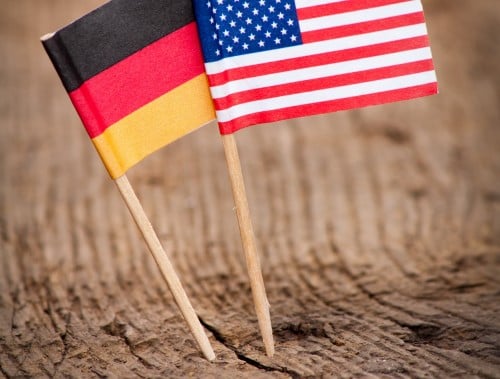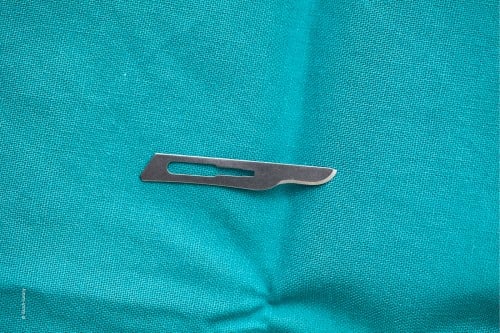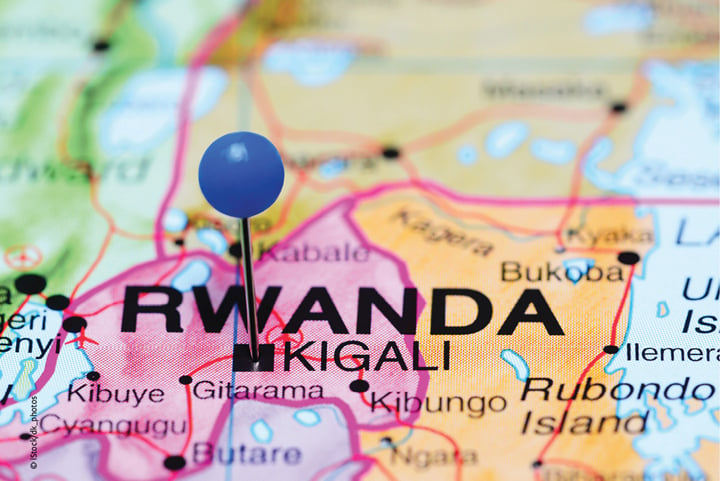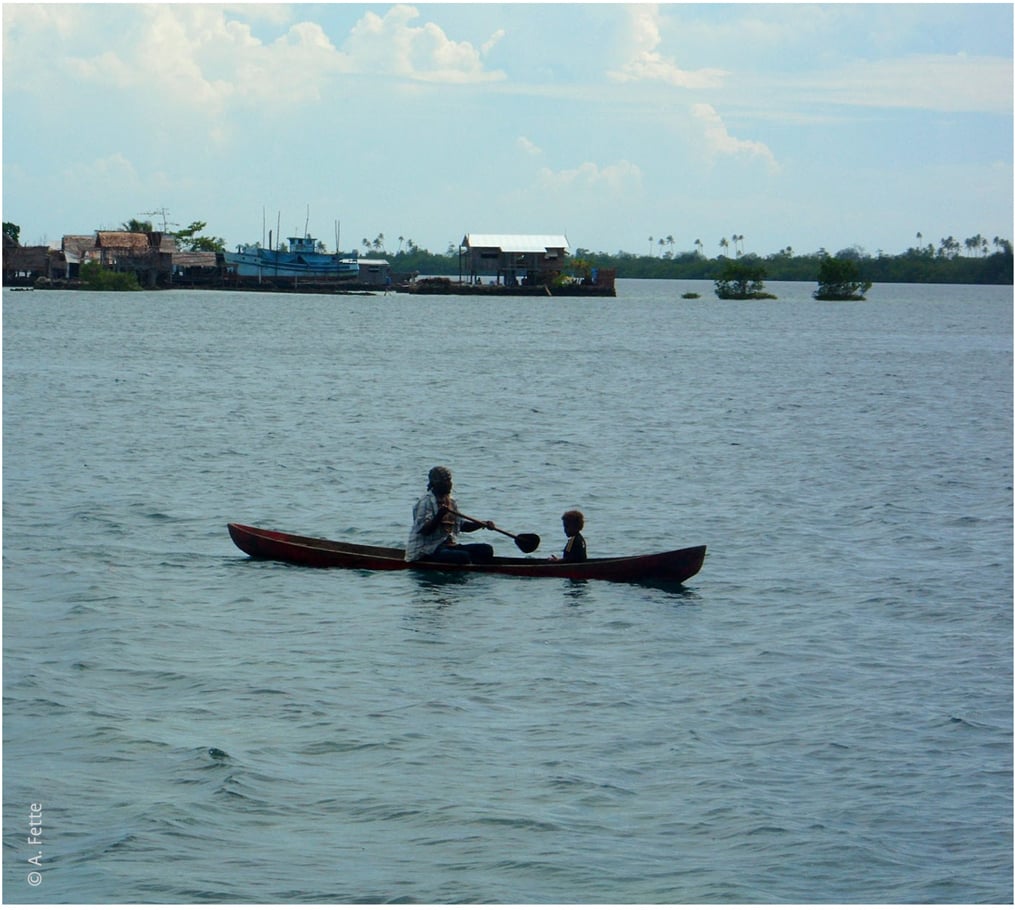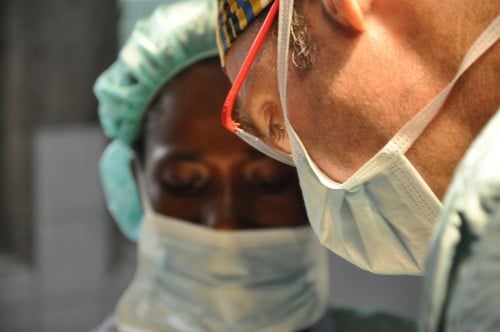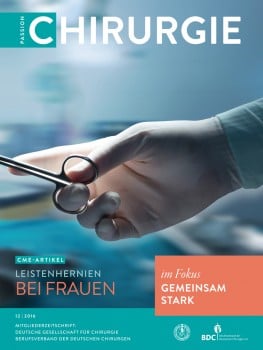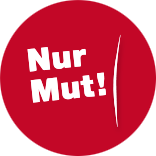This is a report of my experience as the 2016 ACS Traveling Fellow to Germany. I would like to thank the American College of Surgeons and the German Society of Surgery for this wonderful educational and cultural opportunity. I would especially like to thank Prof. Tobias Keck, Prof. Norbert Senninger, Dr. Rosmarie Nowoiski, and Prof. Gabriele Schackert for their assistance in helping me to organize and plan my two week trip to Germany. The primary goal of my fellowship was to learn about the German surgical training system and how they approach the surgical treatment of hepatopancreatobiliary malignancies. I also wanted to gain a better understanding of a nation that is a leading economic power with a rich cultural history, and is the 7th most visited country in the world.
I decided to not only bring my wife, Jane, on this once-in-a-lifetime trip, but also my three daughters, Alexandra (11), Lauren (8), and Taylor (8). I wanted my family to share the experience and broaden their own view of the world through international travel. Since the girls were going to miss two weeks of school, they each chose to perform a research paper on a German landmark or historic attraction.
Berlin: German Society of Surgery Annual Meeting and Charité – Campus Virchow
My first stop in Germany was to attend the 133rd Congress of the German Society of Surgery in April. I gave a research presentation on “Bile duct surgery in the treatment of hepatobiliary and gallbladder malignancies: effect of hepatic and vascular resection on outcomes”. This was an outcome-based analysis of the 2012 NSQIP Participant Use File showing increased morbidity and mortality when hepatic and vascular resection were performed for hilar cholangiocarcinoma and gallbladder cancer. Later that day my family and I ran in a 10 km race sponsored by the German Surgical Society to promote organ donation. The start of the race was delayed by hail but after a 15 minute wait the weather cleared and conditions were much more favorable!
On the third day of the Congress I attended the Member Assembly meeting of the German Society of Surgery to receive my certificate of scholarship for being the 2016 ACS Traveling Fellow to Germany. I was able to meet Prof. Gabriele Schackert, President of the German Society of Surgery. It was truly an honor to be recognized. Afterwards I went to visit the Charité Hospital, Campus Virchow-Klinik Department of General, Visceral and Transplantation Surgery, and met Prof. Johann Pratschke, Chairman of the Department. I was to discuss with him the economics of running a clinical department of surgery and the need to maintain a positive balance sheet. He introduced me to PD Dr. Moritz Schmelzle, Chief of Hepatic Surgery who took me to the OR to observe a donor organ harvest of pancreas and liver. He then invited me to scrub with him on an extended left hepatectomy for a patient with a large symptomatic hemangioma. We discussed his research interests in the role of stem cells in liver regeneration and also his work in treating patients with advanced colorectal liver metastases with two-stage hepatectomy. They will perform portal vein embolization between cycles of chemotherapy so no time is lost waiting for liver hypertrophy. I also learned from him the German model of medical training which involves medical school and residency training but then no specialized fellowship but rather individual training that can be quite variable in length and content depending on each surgeon’s interests and opportunities.
On the last day of the Congress I attended a video session on “Oncologic Visceral Surgery”. This was highlighted by a presentation by Prof Jürgen Weitz, Chair of the Department for Visceral, Thoracic and Vascular Surgery at the University Hospital in Dresden, on “Stapler Hepatectomy: Tipps and Tricks.” He discussed the anatomic variations in portal vein, bile duct, and hepatic artery anatomy and the challenges this presents for hepatic resection. He then showed a video of a right hepatectomy using the stapler technique. Prof. Pratschke also presented a video on “Laparoscopic hemihepatectomy: Tipps and Tricks,” showing his method of extrahepatic vascular control and then subsequent parenchymal transection also using the stapler technique. Both videos were well done and informative.
During my time in Berlin I was able to spend some time touring the city and was impressed by the architecture and cosmopolitan atmosphere, especially after I learned that 75 % of the city had been destroyed after World War II. The Holocaust Memorial was a powerful reminder of a dark chapter in German history but I was impressed at the honesty and transparency of the exhibit. It was a fitting tribute to those who lost their lives during this period. During our visit to the Berlin Wall we met a taxi driver who was 13 years old when the wall came down and his emotional recount of the event was truly memorable.
Lübeck: Klinik für Chirurgie Universitätsklinikum Schleswig-Holstein
The next day we traveled to the city of Lübeck and enjoyed exploring this quaint city known for its coastal atmosphere and world famous marzipan, an almond meal paste used in confections and baked goods.
On Sunday my wife and I had dinner with Prof. Tobias Keck, Professor and Chairman of the University of Lübeck Department of Surgery, and his wife, who is a gynecologist. We had a great evening enjoying North German cuisine and discussing topics such as Prof. Keck’s experience as a Traveling Fellow to the United States and his experiences as a new chairman and how he has grown the pancreatic surgery program at his medical center from 17 pancreatic resections per year to more than 100 procedures per year. I also learned about his family and the challenges of work-life balance for someone in his position.
Prof. Keck picked me up from my hotel and took me to the surgical morning report at the medical center during which the operations performed over the weekend were discussed. I then gave Grand Rounds on the Wake Forest experience with Hyperthermic Intraperitoneal Chemotherapy (HIPEC) and cytoreductive surgery (CRS) for peritoneal disease from colorectal cancer compared to liver resection for colorectal hepatic metastases. Our data demonstrated similar outcomes for these two procedures, suggesting similar tumor biology for these patients. The talk was well-received and I was asked numerous questions about the role of HIPEC and CRS for metastatic colorectal cancer and indications/contraindications for surgery. Afterwards I spent some time with Prof. Keck discussing the biobanking collaboration he has developed in his department and the integration of research data with the electronic medical record which allows patients to be identified through an automated screening process for potential clinical trials. I met Prof. Jens Habermann, head of the section on translational surgical oncology, and was given a tour of the proteomics lab which is directly across the hall from Prof. Keck’s own office, highlighting the close relationship between surgery and ongoing translational research. In the afternoon I scrubbed in with Prof. Keck on a total gastrectomy with D2 lymph node dissection for gastric cancer.
On Tuesday I returned to the medical center in Lübeck to obtain first-hand experience with their three state-of-the-art biospecimen storage and retrieval systems. The complexity and automation of these machines were impressive. I then went to the OR and scrubbed in on a distal pancreatectomy and splenectomy with chief consultant PD Dr. Dirk Bausch. He was very enthusiastic about me being here to visit and actively involved me in his case.
Heidelberg: Universitätsklinikum Heidelberg
I was able to visit the Heidelberg University Hospital where I met Prof. Ulrich, Vice Chairman of the department of surgery. We had a brief discussion of the German model of surgical training and the team approach of the surgical department. Essentially the Chairman and his Vice Chair see patients and make assignments of the operative cases to the Oberärzte (consultant surgeons with special expertise) in the department. These Oberärzte operate five days a week. Though they do visit their patients on the wards a couple times a week, there is a separate team of residents supervised by another attending surgeon with primary responsibility for the day-to-day management and discharge of the postoperative patients. Prof. Ulrich stressed the team approach in German surgery departments which stands for close working relationships among surgeons with improved efficiency and economy of resources, time, and manpower.
I then attended the weekly morbidity and mortality conference which discussed adverse events from the previous week of operations. Afterwards I was taken to the operating suites where I met PD Dr. med. Oliver Strobel and scrubbed in on a planned Whipple resection for pancreatic cancer with IPMN (intraductal papillary mucinous neoplasm) that became a total pancreatectomy due to a positive neck margin. Chairman Prof. Markus Büchler then joined us for this case and he told me about his department of surgery and the vast clinical and research enterprise of the institution he leads. We briefly discussed the controversial role of radiation therapy for pancreatic cancer and differing approaches in the United States versus Europe. Prof. Büchler showed me around the operating suites and the multiple pancreatic and hepatobiliary operative cases going on at the same time, highlighting the high surgical volume of his department. I also observed a segment six partial hepatectomy for hydatid disease performed by PD Dr. med. Arianeb Mehrabi. Though rare in the United States, echinococcal disease is endemic in parts of Germany.
Heidelberg was a quaint and beautiful city and our family was able to visit the Castle (Schloss) Heidelberg, a famous landmark, and the University of Heidelberg Student Prison (Studentenkarzer). Our family had an excellent meal at the Schnitzelbanke restaurant, serving the best Schnitzel we had the entire trip.
After two wonderful weeks exploring and traveling throughout Germany, I can certainly say the ACS Traveling Fellowship exceeded my expectations on all accounts. All the surgeons I met openly welcomed me to their respective institutions and I learned something from all of them. I hope I was able to impart some knowledge through my research presentation and Grand Rounds talk as an exchange of information. Though I saw differences in technique and methods of training, I felt a common bond with my hosts as physicians committed to patient care through surgery and research. I again want to thank the American College of Surgeons and the German Society of Surgery for this wonderful opportunity and experience. It has affirmed my commitment to medicine and expanded my view of surgery on a global stage. I will always remember my time as a Traveling Fellow to Germany with honor and gratitude.









